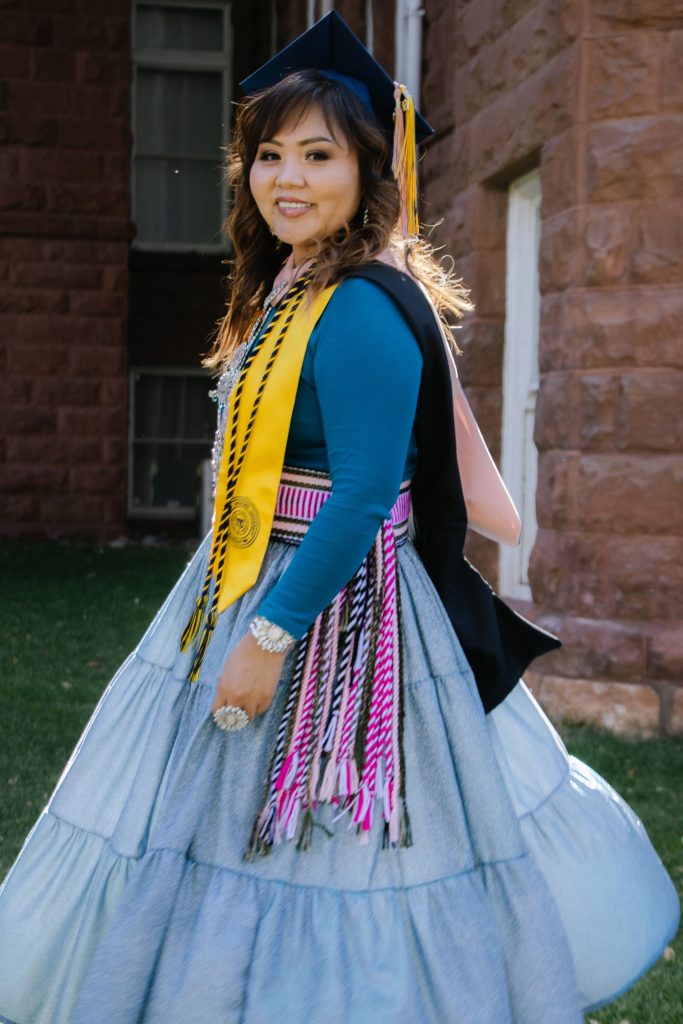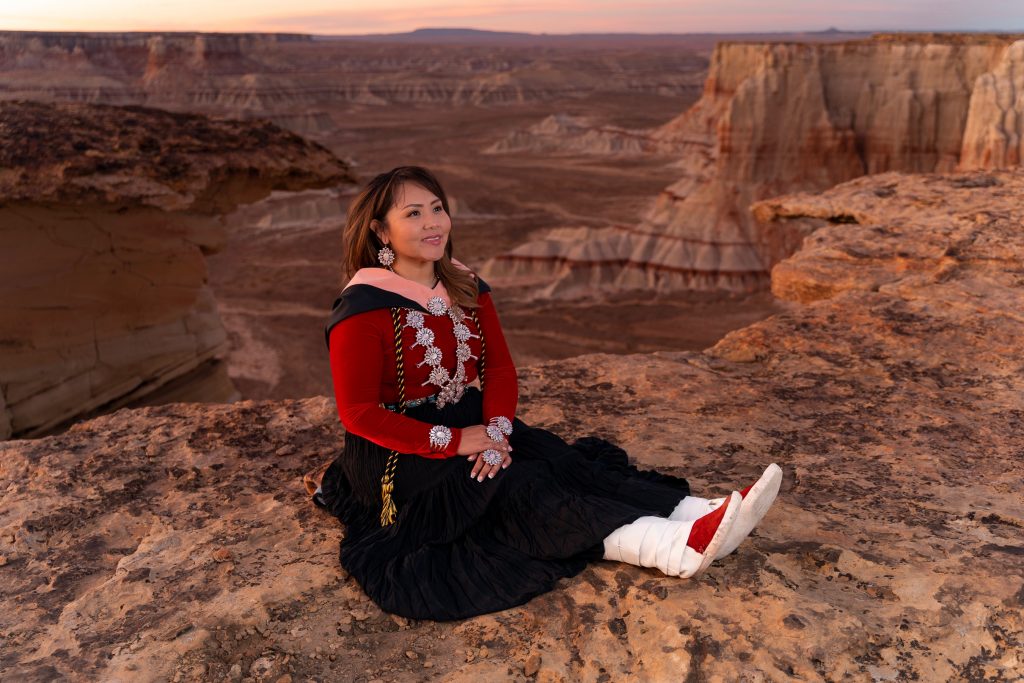Community health has always been a driving factor for Jaime Begay.
It also influenced her choice for graduate school; Begay, who had already graduated from NAU with a bachelor’s degree, came back for a master’s of public health (MPH) program that had an Indigenous health track that aligned with, and allowed her to continue, her work in her tribal community.
At no point has this work been more important than now because COVID-19 hit tribal nations especially hard. In addition to public health research and outreach, Begay, who is Diné, spent time focused on the most basic needs in her community, delivering wellness boxes to families in Tuba City and working to gather and distribute essential resources like food, medicine, oximeters, PPE, toiletries and cleaning products.
“The value of that experience stems from my appreciation and responsibility I feel for my community,” she said. “Through that experience, resilience was the foundation of our efforts.”
That resilience has helped her throughout her work. At NAU, Begay with the Center for Health Equity Research as a graduate research assistant with the Navajo Native American Research Center for Health (NARCH). The partnership between NAU and Diné College helps to foster the Indigenous public health workforce through education and improve community health on the Navajo Nation. She worked as a teaching assistant at Diné College and helped mentor students and provided guidance for American Indian undergraduate students.

And, like all students completing their degree this year, Begay had to cope with going to school during the pandemic. She leaned in to the technological side of it, including facilitating virtual information sessions to help recruit students to the MPH program and helping to plan and put on the Navajo Nation Human Research Review Board virtual conference. In addition to helping with registration, answering emails and working on other logistics, she also presented on the Asdzáán Be’eena’ project to the almost 400 attendees. This conference is vital to research on the Navajo Nation, she said, because the attendees go through each research project to ensure it is ethical and relevant to the Navajo people.
She found community in her MPH cohort; Begay’s classmates leaned on each other and worked closely despite the pandemic-mandated distancing, and the “public health trailblazers” who are on the faculty supported the cohort throughout their challenging program. Begay’s biggest challenge, however, actually ended up being a little of her own making—juggling two part-time jobs and her classes made keeping on top of everything rather difficult.
“Thank goodness for my color-coded calendar and my Post-It reminders,” she laughed. “However, multitasking and being pulled in different directions is the blueprint of public health, so I say this challenge was preparing me for my future.”
Now, as she is finishing her second degree and looking ahead to a third, Begay’s commitment to public health advocacy is what drives her every day. That dedication actually started long before she came to NAU through a rather unexpected pathway. When she was 8 years old, her father suggested that she start participating in the jingle dress dance as a way to stay connected. For Begay, it was so much more.
“The jingle dress dance is a healing dance and synonymous with my career path as a public health advocate,” she said. “I want to see health disparities lifted from native communities. That is my hope for the future and what I will actively take part in at the completion of my degree.”
Heidi Toth | NAU Communications
(928) 523-8737 | heidi.toth@nau.edu




